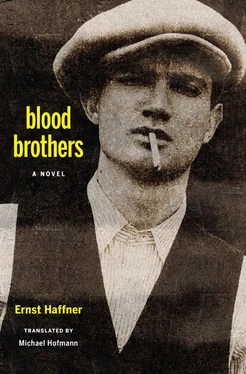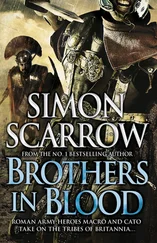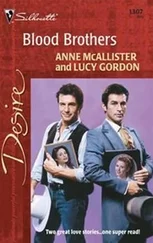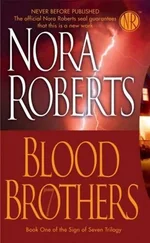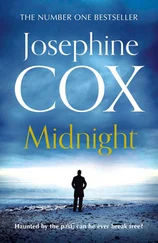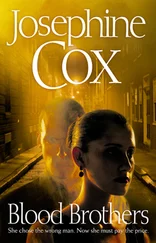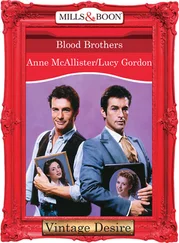One day, Willi is sent the charge sheet from the juvenile court. Actual bodily harm. Ten days later, two masters accompany him to court. He is the only accused, none of the other identities could be established. Herr Friedrich gives evidence, and refers to “chronic impairments of health that are still with me today.” The headmaster gives the court his sense of Willi’s character. Willi is rough, stubborn, and violence is his element. He represents a constant danger to the institution.
“Accused, do you at least feel any remorse for your ugly action?” asks the judge. “Do you want me to tell the truth, Your Honor?” “Why, naturally!” “Your Honor, I don’t. Herr Friedrich tormented us too much,” says Willy, cutting himself off from any possibility of a lighter sentence. His outspokenness is very much to the headmaster’s liking. Now he can be sure of getting shot of the boy. “… I therefore call for a sentence of three months in prison. Further, I would like to ask expressly that the accused — whose coarseness bears out the headmaster’s account of his character — be denied probation,” argues the prosecutor, incensed.
“The accused is sentenced to two months. The court was not able to find any mitigating circumstances, seeing as the accused expressly stands by his actions.”
Willi’s punishment begins three weeks later.
By the time Willi has served his term in prison and is returned to the care of the institution, he’s just three weeks and two days from his twenty-first birthday. Three weeks and two days till freedom! It’s getting to be time to make a detailed plan with Ludwig. During a free period one afternoon, they’re strolling across the yard together. “Ludwig, I’m going to go straight back to Ma Bauerbach’s in Berlin, and sell those shoes we’ve got left. They’ll bring in at least twenty-five marks. We’ve still got a hundred and fifty, comes to one hundred and seventy-five. The following day I’ll come back here, I’ll rent a bicycle and I’ll wait for you at 8 p.m. You go over the wall, and we rush into town on the bicycle, give it back, and take the next train to wherever it’s going. Just to get out of the area. And then we go to Berlin. When they let me go here, I’ll get one free ticket to Berlin. The return here, and tickets for us both to Berlin will cost about sixty marks. That will leave us with about a hundred. But that’s okay, we’ll earn it back, in Berlin. How’s that sound to you, Ludwig?” Ludwig looks at his friend who, on his account, is prepared to live unregistered with him, wanted by the authorities. “Okay, Willi.” They shake on it.
The day before Willi’s departure, they iron out the last few details: where Willi will be waiting with the bicycle, what time Ludwig is going over the wall. The headmaster asks to see Willi when he is released. “Here’s your money, one hundred and fifty marks. Here’s a ticket to Berlin. And now, Herr Kludas, all that remains is for me to hope that you may still one day become a useful member of society. Goodbye.” “Bye.”
A June day, lovely and succulent, greets Willi. And Willi greets it back; but his greeting to freedom, his drowning in the incomparably lovely summer’s day, is brief and rushed. Quick, off to the city, mustn’t miss the train. Pleased? Sure, Willi’s pleased. But there’s still someone else stuck inside, namely Ludwig, and he wants to get out and feel free as well. First he wants springing. Once they’re both safely back in Berlin, then there’s all the time in the world to relish their situation. Hurry, hurry. Don’t fret, Ludwig. I’ll be there for you.
There’s the express standing there. No, no need to crawl under the wood wool this time. On the train is cushier than underneath. Let’s go, driver! What are we waiting for? Ludwig wants to eat pea soup at Aschinger’s!
Berlin: Anhalter Bahnhof. A huge human wave spills out of the boiling-hot compartments, floods the platform, greets and is greeted, calls for porters, blubs happily into handkerchiefs, and surges noisily into the station hall. There is still a little daylight, and Askanischer Platz is flashing in the light of electric suns, and the bubbling of advertisements. A summer evening, warm but not too warm. People are in less of a hurry than usual. The air is pleasantly tiring, women and girls rest softly and warmly in the embraces of men.
What do I care about all this, thinks Willi. Got to get myself to Mother Bauerbach’s, Ziethenstrasse, Neukölln. Maybe she’ll let me sleep there, if she’s not re-let the room. Tomorrow morning, bright and early, flog shoes, then run back to the train. Ludwig will be waiting tomorrow at eight.
In Ziethenstrasse the “To Let” sign is hanging out. “Evening, Frau Bauerbach.” “Oh, it’s you, Herr … Herr …” “My actual name is Kludas, Frau Bauerbach.” “I thought you were …” “Freed, Frau Bauerbach, freed. Here’s the stamp to prove it. And I’m now adult.” Among Berlin landladies, Frau Bauerbach is such a rare specimen she probably deserves to go in a museum. Anyone else would have slammed the door in the convict’s face. Frau Bauerbach asks and asks away and she cries a nice little tear when she learns that Ludwig is still looking at a whole year in the institution. “Would it be all right if I stayed the night here? I’ll take out the shoes tomorrow, and then I’ll be on my way.” “But of course, Herr Kaiweit … Herr … Kludas, of course.”
At eight o’clock the next morning, Willi is with the dealers, hawking his shoes. Why is it so long since he was last round, he is asked. “Been sick, master, been sick. First I had measles, then I went away as a journeyman,” Willi lies smoothly. “But now we’ll be back, regular-like. What will you give me for the whole lot?” “For everything? I’m not sure I want it. Let’s have a look.” “What about thirty marks,” suggests Willi. In the end he gets twenty-eight, which he is very happy with.
What’s the time now? Just a bit to eat, then back to Mother Bauerbach’s, to pick up his baggage and say goodbye. Then leave the suitcase at the station, and get on the express. Ludwig will be trembling with impatience. You reckon I might not make it? That’s all you know, chum! Hope I can get a bike in that dump.
He does. “What’s the deposit on a bicycle?” “Fifty marks.” “Got it here. Can I have a receipt …? Now, I aim to be back in three hours.” He gets on the old boneshaker and sets off in Ludwig’s direction. It’s getting to be time. Ludwig will be sniffing to see if the coast is clear. Get on over the wall, Ludwig! I’m on my way! Come on, come on! The bike’s going nicely … Cut through the village, and then the borstal heaves into sight. Come on … come on! There at the back, under the clump of trees, that’s my spot. Stand the bike against the tree, ready to go. Look out for Ludwig …
Here he comes! He’s running! Look at him go! He’s racing … and racing! “Ludwig!” “Willi!.. Willi!” The tears are streaming down his cheeks. “Get on the luggage rack, Ludwig! You ready?” “Yup.” “Okay! Go, go, go!” “Willi …” “Save it for later, I need to pedal!” And push … and push …
“There’s your bike back, chief. Went like a dream …” The station. When’s the next train? It’s eight-oh-… In six minutes. Wrong direction. Who cares? Get out of here. They’ve got the compartment to themselves. “All aboard!” “Here you go, Ludwig, ciggy to chomp on.” Rat-ta-ta-TA, rat-ta-ta-TA … They have to spend the night in the place the train ends up. They eat dinner in a simple restaurant, raise a glass to health and happiness, and then go to sleep. Early next morning, there’s a train to Berlin.
And then it’s Anhalter Bahnhof again. Once again, they spend the night in a small hotel, and propose to look for a room the next day in the area of Görlitzer Bahnhof. They will claim to be the Kludas brothers; no hope of any police registration, of course. Too bad, really, Ma Bauerbach was such a nice landlady … On Wiener Strasse they find something suitable. A half-deaf tailor, another basement flat. The room is so big that they can use a corner of it as a workshop. “How much is the room for the two of us?” they yell into the tailor’s ear. The old fellow doesn’t want much. Eight marks a week. And Herr Kratochvil has no objection to their profession as boot-buyers. They go back to Anhalter Bahnhof and pick up Willi’s suitcase and their gear. Of course, Ludwig has had to leave his clobber in the institution. “We’ll buy new stuff,” Willi comforts him. They spend the day straightening up the room and setting up the workshop. In the evening they sit up for a long time in their new home, wondering which streets they will go to tomorrow, to relieve them of their old footwear.
Читать дальше
